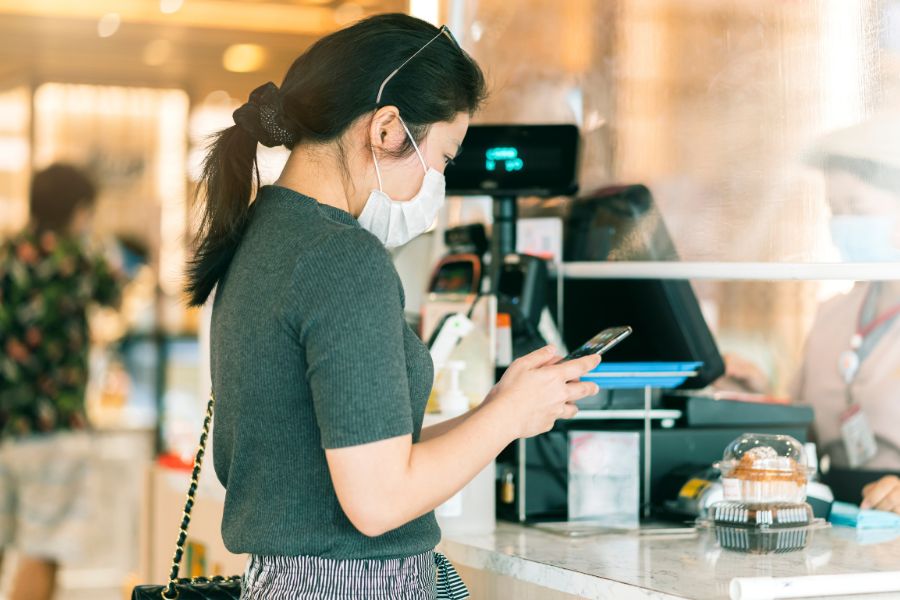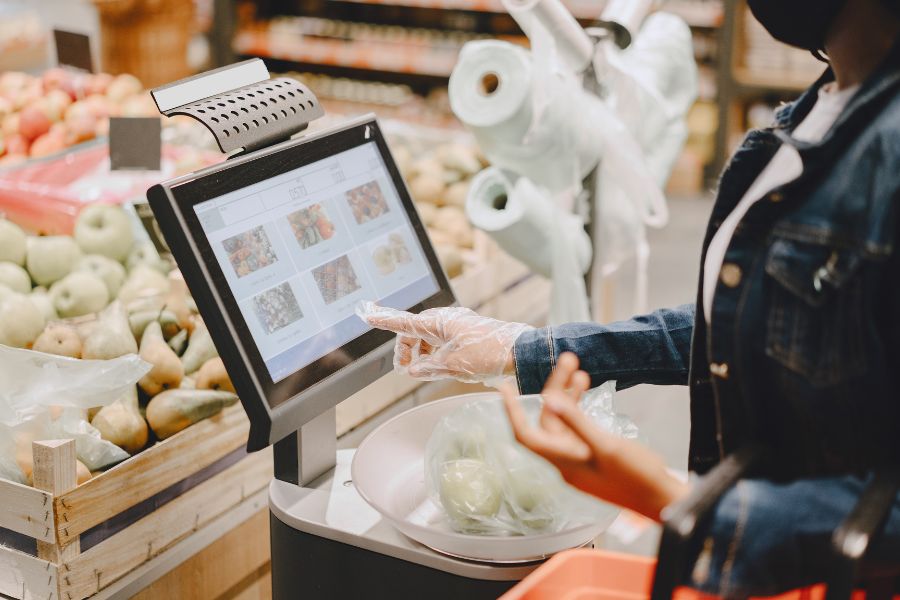Succeeding in Indonesia’s retail market means keeping up with shifting consumer habits across online stores, physical shops, and social commerce. A POS eCommerce Indonesia system connects sales, inventory, and customer data, making transactions smoother and business operations more efficient.
With Indonesia’s fast-growing digital economy and the increasing demand for convenience, investing in the right technology can help businesses stay ahead. In this article, we’ll explore how a POS eCommerce system can help businesses in Indonesia streamline operations, improve customer experiences, and drive growth.
Highlights:
- The rise of digital payments, the popularity of omnichannel shopping, and government-backed initiatives like QRIS are reshaping how retailers operate and interact with customers.
- A connected POS eCommerce system keeps inventory accurate, simplifies transactions, and aligns online and offline sales.
Key Market Trends Driving POS eCommerce Indonesia Adoption
Indonesia leads Southeast Asia’s online retail scene, with its e-commerce market valued at around $82 billion. The coronavirus outbreak sped up this growth as consumers began purchasing products and services through the internet, and many businesses shifted operations to digital channels. An increase in internet access and a stronger digital framework continue to drive this market forward.
Market predictions indicate that online sales in Indonesia might reach $150 billion by 2030, growing from $65 billion in 2024. This growth may position Indonesia as the source of more than 40% of Southeast Asia’s e-commerce activity, propelled by a rising middle class and improved internet connectivity. Other nations in the region, such as Malaysia, the Philippines, Thailand, and Vietnam, are also experiencing an upturn in online shopping.
In addition, the expansion of the e-commerce market has a direct connection to the adoption of POS eCommerce Indonesia. As more transactions occur online, businesses are turning to modern POS systems that support digital payment methods and online sales management. Currently, 30 million Indonesians participate in online transactions, contributing to an $8 billion market that could surpass $40 billion in the next five years as the digital commerce landscape evolves.
Why POS Ecommerce is Important for Businesses in Indonesia
As discussed, the changes in retail market, fueled by technology and customer behaviors, have caused Indonesian businesses to flock for more robust POS ecommerce platforms.
Unifying shopping across channels
Shoppers in Indonesia move seamlessly between in-store and online experiences. A POS eCommerce Indonesia system keeps inventory aligned across multiple sales channels, preventing stock discrepancies that can lead to lost sales and dissatisfied customers.
- Inventory Accuracy: When a product is purchased online or in-store, the system updates stock levels instantly, avoiding overstocking or stockouts.
- Flexible Shopping Options: Customers can browse products online, visit a store for a hands-on experience, and complete their purchase through self-checkout kiosks, mobile payments, or home delivery.
- Click-and-Collect Services: Many shoppers prefer ordering online and picking up in-store (BOPIS), reducing wait times and shipping costs while increasing foot traffic in physical locations.
- Unified Promotions and Loyalty Programs: A connected POS system applies discounts, loyalty points, and personalized offers across all channels, ensuring consistency.
In a market where consumer expectations continue to rise, businesses that offer convenience and flexibility gain a competitive advantage.
Adapting to Indonesia’s digital payments
Cash transactions are declining as digital payments become more common. A POS eCommerce system that keeps up with these changes helps businesses serve a wider audience.
- QR Code Standardization: The Indonesian government introduced QRIS (QR Code Indonesia Standard) to unify payment systems across providers. A modern POS should support QRIS, giving customers the option to pay using any linked e-wallet or bank.
- E-Wallet Dominance: Services like GoPay, OVO, ShopeePay, DANA, and LinkAja are widely used for both online and in-person purchases. A POS system that accepts these payment methods attracts more customers.
- Buy Now, Pay Later (BNPL) Integration: Platforms like Kredivo and Akulaku allow customers to pay in installments, making high-value purchases more accessible. Retailers that support BNPL options increase their chances of securing bigger transactions.
- Contactless and Mobile Payments: Near-field communication (NFC) technology, credit/debit card payments, and direct bank transfers continue to grow in popularity. Businesses must ensure their POS systems support these methods to cater to a diverse audience.
Ignoring digital payment trends may result in missed sales opportunities, as customers increasingly expect cashless transactions.
Cutting costs and simplifying operations
Retailers and service providers juggle multiple tasks, from inventory management to order fulfillment. A POS eCommerce Indonesia system minimizes manual work and eliminates inefficiencies.
- Automated Stock Control: The system tracks inventory levels in real time, sending alerts when stock runs low. This prevents lost sales due to unavailable items and avoids excessive ordering.
- Faster Checkout Process: POS solutions equipped with barcode scanning, mobile payment acceptance, and self-checkout options speed up transactions, reducing wait times and improving customer satisfaction.
- Integrated Accounting: Financial records update automatically, eliminating the need for manual reconciliation and reducing errors. A direct connection with accounting software simplifies tax reporting and expense tracking.
- Labor Efficiency: By minimizing repetitive tasks, businesses can allocate staff to more value-driven roles such as customer service and sales strategy.
For businesses looking to maintain profitability, cutting unnecessary costs while improving service quality is a key priority.
Using data for growth and decisions
A POS eCommerce system provides valuable insights for businesses to refine strategies and respond to market trends.
- Sales Pattern Analysis: Identifying peak shopping hours, top-selling products, and seasonal trends helps businesses plan stock levels and promotions effectively.
- Customer Behavior Insights: The system tracks repeat purchases, preferred payment methods, and browsing habits, allowing businesses to create targeted marketing campaigns.
- Price Optimization: Data-driven pricing strategies ensure products remain competitive while maximizing profit margins.
- Supplier and Order Management: Keeping track of supplier performance, order delays, and cost fluctuations allows businesses to negotiate better deals and maintain a reliable supply chain.
Data-backed decisions reduce guesswork, enabling businesses to adapt quickly to shifting consumer preferences.
Choosing the Right POS Ecommerce Indonesia
Key Considerations for Indonesia
A POS system must align with Indonesia’s business environment. The country has a unique mix of payment methods, tax policies, and customer expectations that influence how transactions are processed. A system designed for another market may lack the necessary features, creating unnecessary challenges.
Payment preferences are one of the most important factors. E-wallets like GoPay, OVO, ShopeePay, and DANA dominate digital transactions, while QRIS allows merchants to accept payments from multiple banks and fintech apps. A POS should accommodate these options alongside traditional credit cards and bank transfers to avoid losing sales.
Tax regulations also play a major role. Businesses must comply with Indonesia’s VAT system and electronic invoicing rules. A POS that generates tax-compliant invoices and reports simplifies financial management, reducing the risk of fines or audits. Ensuring compatibility with government regulations prevents unnecessary disruptions.
Local vs. International POS Systems
Businesses can choose between local and international POS solutions. Each type has its advantages, depending on company size, operational scope, and future plans. A careful comparison helps avoid unnecessary expenses and limitations.
Local POS eCommerce Indonesia is designed specifically for Indonesia. They support local payment methods, comply with tax regulations, and integrate with major eCommerce platforms like Tokopedia and Shopee. Customer service is usually available in Bahasa Indonesia, making troubleshooting easier. These systems also adapt quickly to regulatory changes, ensuring compliance without requiring additional adjustments.
International POS systems are better suited for businesses looking to expand beyond Indonesia. They provide integration with global eCommerce platforms, support multi-currency transactions, and offer extensive analytics tools. However, they often come with higher costs, requiring businesses to pay for software licenses, transaction fees, and maintenance. Some features may also be unavailable in Indonesia, leading to compatibility issues.
Costs and ROI Analysis
The cost of a POS eCommerce Indonesia system includes more than just the initial purchase. Businesses must account for both direct expenses and the potential return on investment. A thorough cost analysis prevents overspending while ensuring that the system delivers value over time.
Initial costs include hardware such as touchscreen terminals, barcode scanners, and receipt printers. Software expenses vary depending on whether the system is cloud-based or on-premise. Cloud-based solutions typically charge a monthly or annual fee, while on-premise options require a one-time payment but may involve additional costs for updates and security.
Ongoing expenses include transaction fees, support services, and maintenance. Some POS providers take a percentage of every sale, affecting profit margins. Additionally, software updates, security patches, and customer support may require additional payments. Understanding these costs helps businesses select a system that aligns with their budget.
Why ConnectPOS SEA is a Top Choice for Indonesian Businesses
Designed with retailers in mind, ConnectPOS SEA brings the right tools for Indonesian businesses looking to modernize their operations and improve customer interactions.
- Smooth Omnichannel Operations: ConnectPOS SEA connects online and in-store sales, keeping inventory and transactions updated in real time. Customers get a consistent shopping experience across all platforms.
- Localized for the Indonesian Market: With support for Bahasa Indonesia and multiple currencies, businesses can manage transactions in IDR while providing a familiar experience for local shoppers.
- Flexible Payment Options: The system works with e-wallets, credit cards, BNPL services, and other payment methods popular in Indonesia, making transactions fast and convenient.
- Built for Growth: Designed to support businesses at any stage, ConnectPOS SEA adapts easily whether managing a single outlet or a nationwide retail chain. The Multi-Source Inventory (MSI) system ensures stock accuracy across different locations.
- Custom Fit for Any Business: The API-first approach allows smooth integration with CRM, ERP, accounting tools, and third-party applications. Businesses can customize the system to match their specific needs.
- Mobile POS for Flexible Selling: ConnectPOS SEA mobile POS runs on tablets and smartphones, making it easy for staff to assist customers, process orders, and accept payments anywhere in the store or at pop-up events.
- Reliable Performance, Online or Offline: Stores can continue operating even during internet outages. Once reconnected, the system syncs data automatically, keeping everything up to date.
FAQs: POS eCommerce Indonesia
Why do businesses in Indonesia need a POS eCommerce Indonesia?
A POS eCommerce system connects offline and online sales, manages inventory, and supports digital payments. It helps businesses operate smoothly across marketplaces like Tokopedia and Shopee while ensuring compliance with Indonesia’s tax regulations.
What payment methods should a POS support in Indonesia?
A POS must support QRIS, GoPay, OVO, ShopeePay, DANA, bank transfers (BCA KlikPay, Mandiri Clickpay), credit/debit cards, and cash payments to serve all customer preferences.
What are the costs of a POS eCommerce system in Indonesia?
Costs include hardware (cash registers, barcode scanners, receipt printers), software (subscription or one-time fees), payment processing fees, and maintenance.
Conclusion
Success in Indonesia’s retail market comes down to how well a business adapts to shifting consumer behaviors and an increasingly digital economy. A POS eCommerce Indonesia system is the key to maintaining accurate inventory, streamlining payments, and unifying sales channels – all of which directly impact customer satisfaction and profitability. Businesses that invest in the right technology can reduce inefficiencies, make smarter decisions with real-time data, and stay ahead of market trends.
ConnectPOS SEA brings the right technology to simplify operations and create better shopping experiences. Contact us today to see how it can support your business goals.





